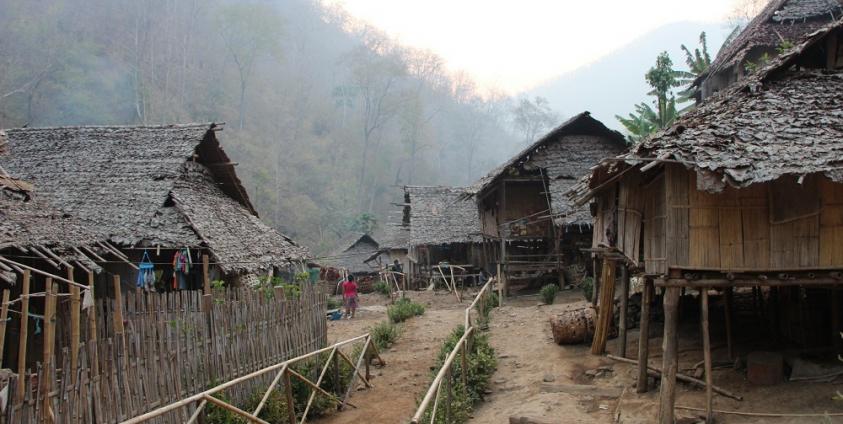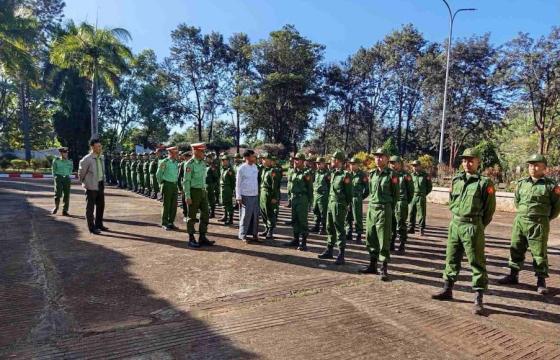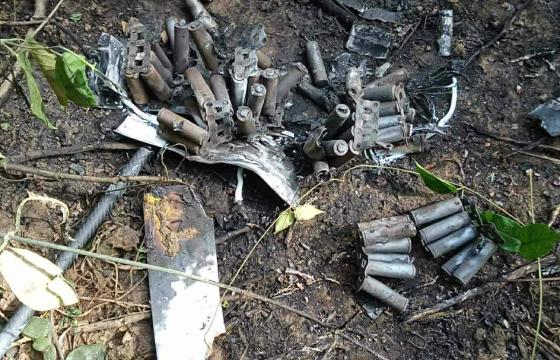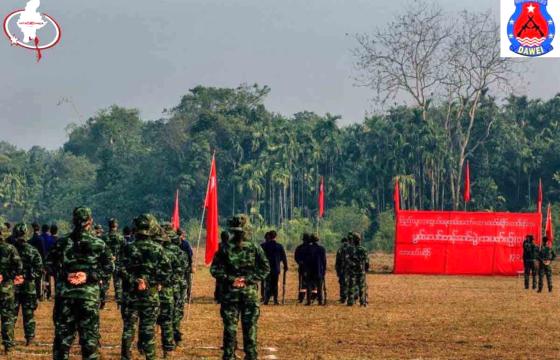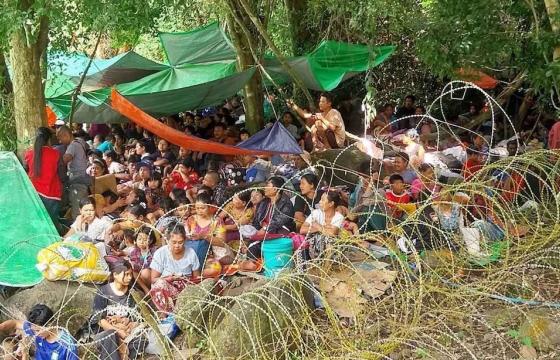To cope with a severe funding deficit, staff at nine refugee camps along the Thai-Myanmar border have agreed to take a 40 percent pay cut.
The salary change will affect community-based workers starting in July, according to Saw Pwe Say, secretary of the Karen Refugee Committee. He said a consensus decision was made at the end of May after the KRC and Thai Border Consortium discussed how to best continue managing the camps in the face of decreasing international donations.
“If we reduced the number of workers, everyone might resign so we decided not to reduce the number of workers. We will instead reduce 40 percent of the stipend. We will stick together through thick and thin. If we work, we will work together. If we resign, we will resign together,” he said.
About 10,000 staffers at the camps supported by the border consortium and another 2,800 under the KRC are expected to be affected by the cutback. Community-based workers include camp leaders, health workers, teachers, and security. Most receive a stipend somewhere between 1,000 to 2,000 baht ($28-56) per month.
Officials from the refugee camps said they suspect some workers may resign anyways due to the large salary cut.
“There are many difficulties. International aid will likely be suspended in 2018 or 2019. It’s difficult for us to prepare ahead since we don’t know when the food and aid will stop,” said Saw Honesty, chair of Mae La Refugee Camp, which is about 37 miles (60 kilometers) north of Mae Sot.
According to statistics released by TBC, over 100,000 Myanmar refugees continue to reside in Ban Nai Soi, Ban Mae Surin, Mae La Oon, Mae Ra Ma Luang, Mae La, Umpiem Mai, Nu Po, Ban Don Yang, and Tham Hin refugee camps.
International donations to the camps have been on the decline for several years as donors look to support initiatives within Myanmar, or have to prioritize more urgent crises.


